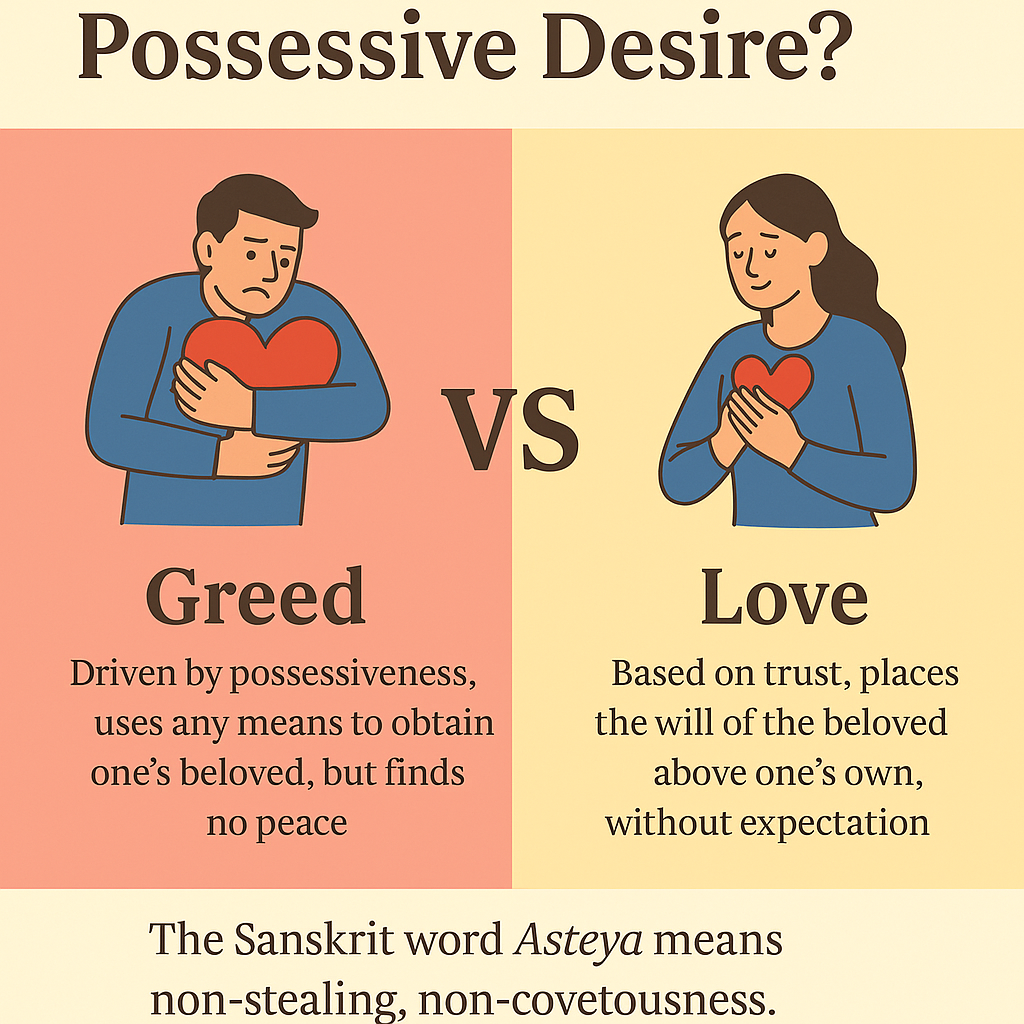Asteya: Pure Love or Possessive Desire?
Love is rooted in human nature. It is the driving force of life, but every person chooses what or whom to love. Our desires, dreams, attachments, and needs shape the direction of that love.
Naturally, we tend to think about what we love. The deeper the affection, the more it occupies our thoughts. In the early stages, we might only think about our beloved occasionally. But over time, as affection grows, thoughts of the beloved become more frequent—eventually consuming even the mundane moments of daily life.
At this point, a person stands at a crossroads, where the path chosen greatly influences their destiny.
One path leads to greed and possessiveness, while the other leads to serene, selfless love free from the need for ownership.
The Sanskrit word Asteya means non-stealing, non-covetousness, and trustworthiness. It is the third principle of yogic ethics (Yamas).
When love arises, it often brings with it the desire to possess the beloved. It’s natural to want to be close to what we love, but if that desire turns into greed, it leads to emotional turmoil.
A person driven by greed will use any means to achieve their desires. Even if they succeed in obtaining what they love, they will not find peace—because they view their beloved as a possession. Fear of loss haunts them constantly.
On the other hand, if they fail to obtain the object of their affection, they may feel empty and disillusioned, abandoning everything altogether. This emotional instability, born of possessiveness, robs both the lover and the beloved of inner peace.
Greed-based love lacks true depth. When such a love fails, the person may swing to the opposite extreme—hatred. In greed, love and hate are neighbors. But true love has no neighbor—it reigns alone in the realm of the heart.
If, at that critical crossroad, the lover chooses the path of balance between feeling and wisdom, they avoid the trap of selfishness. They never place their desires above the will of the beloved. The beloved’s desire becomes their own, their will becomes one.
This kind of love penetrates the soul, ruling the heart without expectation or reward. It is rooted in trust, strength, and calm—not anxiety or fear.
Yet, sometimes we find ourselves on the wrong path before we even realize it—already caught in the web of possessiveness, fearing loss and drowning in longing.
To avoid this trap, we must become aware before attachment turns into obsession.
The flames of pure love burn away selfishness, yet they become a garden in the heart of the one who loves selflessly.

